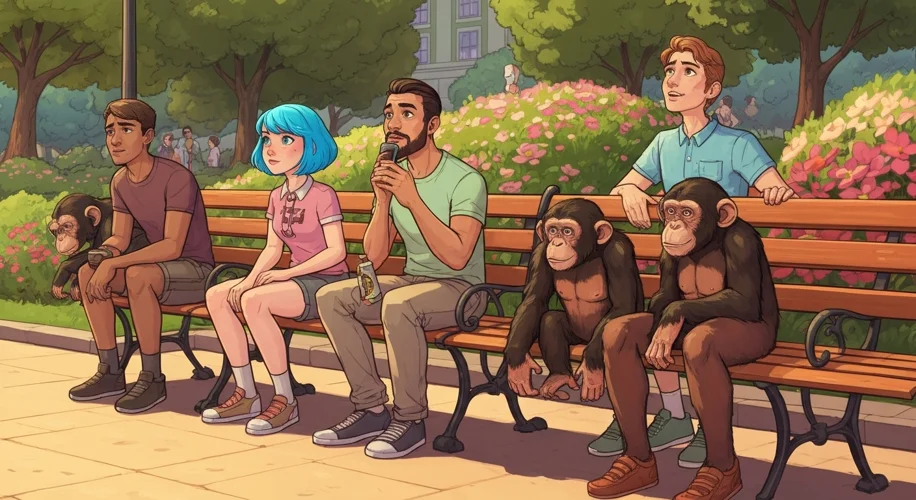Did you know that even chimps and macaques share a common human trait? It’s true! A fascinating drive to simply ‘people watch’ is something we have in common with our primate relatives.
This isn’t just about idle curiosity. Scientists believe this tendency is deeply rooted in social cognition – our ability to understand and interact with others. From an atmospheric science perspective, I often think about how complex systems interact and influence each other. In a way, observing others is like understanding the dynamics of an atmospheric system, but on a much more personal, social level.
The Evolutionary Advantage
Why did this behavior evolve? Think about it: in the wild, observing others can be crucial for survival. Knowing who is friendly, who is a threat, and who has valuable resources can make all the difference. For early humans, this social observation would have been vital for group cohesion, learning skills, and understanding social hierarchies. It’s a behavior that’s been shaped by millions of years of evolution, giving us an advantage in navigating complex social environments.
It’s All About Social Learning
This instinct to watch others is also a powerful driver for social learning. We learn by observing. Whether it’s a child watching a parent tie their shoes or a young chimp observing an elder use a tool, we’re constantly absorbing information from those around us. This is how traditions are passed down, skills are mastered, and culture is formed.
Even something as simple as watching someone else eat can influence our own choices. Studies have shown that observing others’ eating habits can affect what and how much we eat, highlighting the subtle but pervasive influence of social observation on our daily lives.
More Than Just a Glance
It’s not just about seeing; it’s about understanding. When we people-watch, we’re often unconsciously trying to read intentions, emotions, and social cues. This helps us predict behavior and navigate social situations more effectively. It’s a sophisticated cognitive process that allows us to build relationships, cooperate, and thrive in societies.
So, the next time you find yourself people-watching at a café or a park, remember you’re tapping into an ancient, fundamental instinct. It’s a behavior shared across species, deeply embedded in our biology, and essential for how we learn, connect, and understand the world around us. It’s a powerful reminder of our shared social nature with the primate world, and a fascinating glimpse into the evolution of intelligence.

